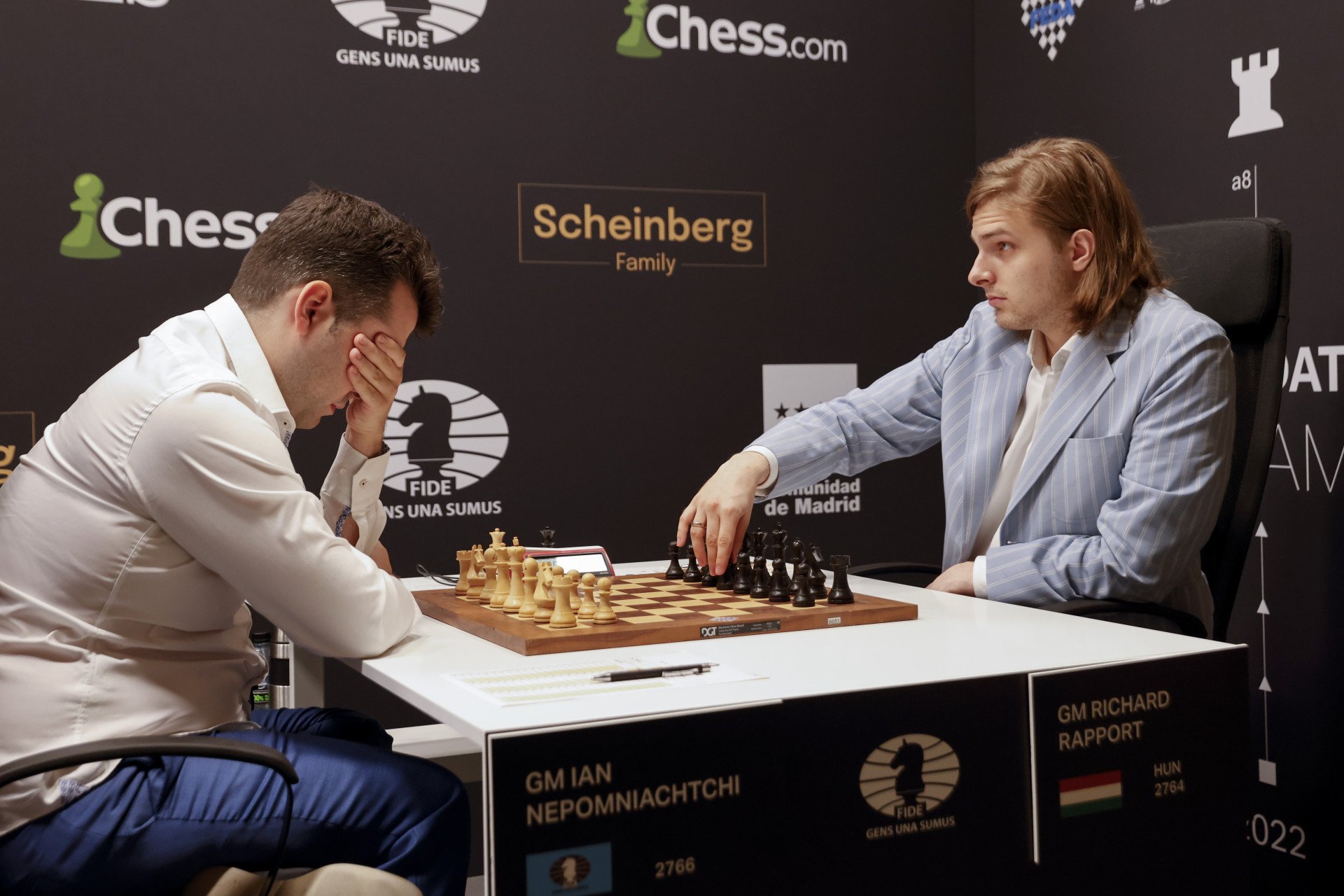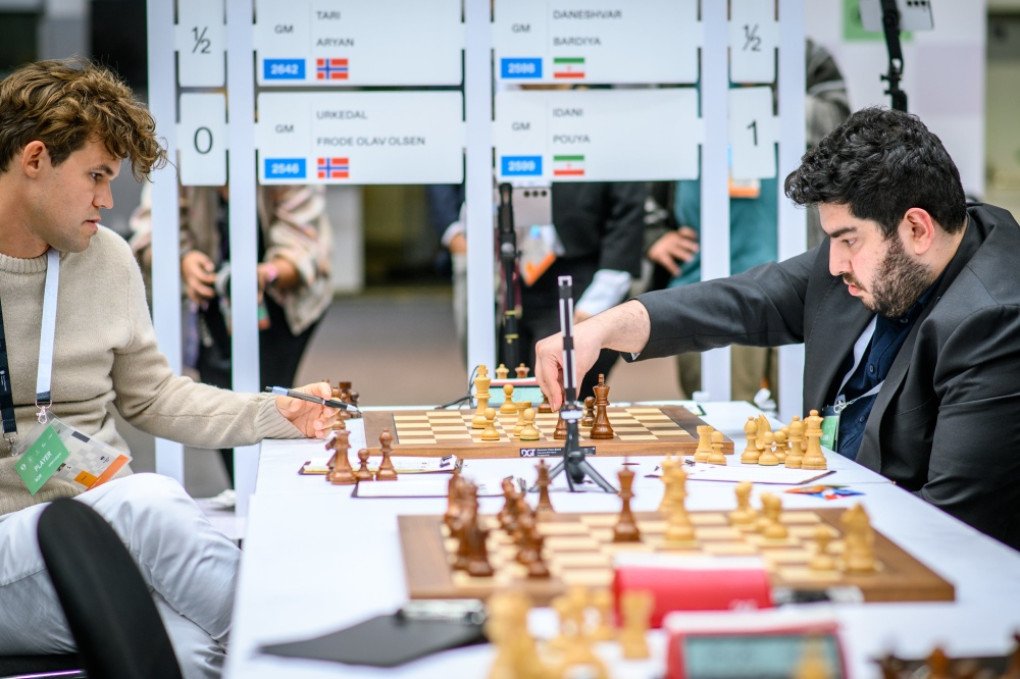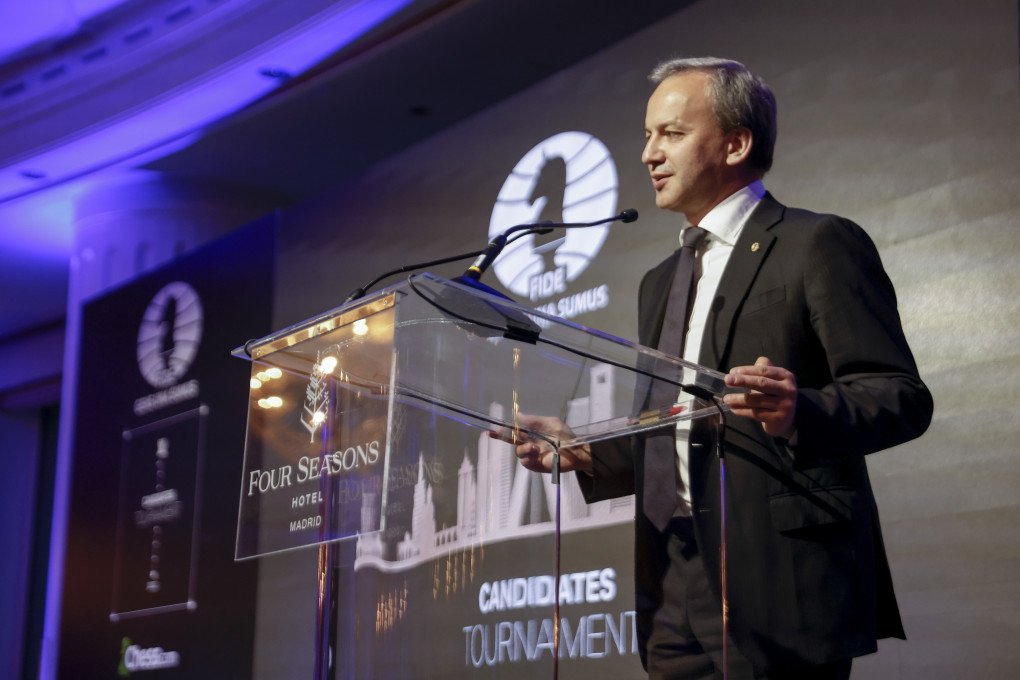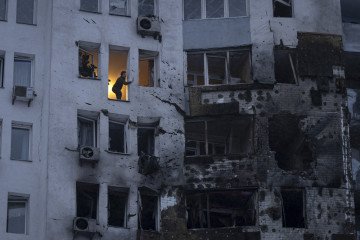- Category
- Life in Ukraine
As the 2024 Chess Olympiad Wraps Up, Russia’s Push for a Comeback to Global Chess Looms, but Ukraine Is Fighting Back

While Ukrainian chess players fall victim to Russia’s ongoing invasion, the International Chess Federation (FIDE) is on the verge of fully reinstating Russia and Belarus in global chess—a decision that could forever stain the sport’s integrity and hand Moscow a major propaganda victory.
How did we get here? Even heavily influenced by Russia, FIDE has followed the International Olympic Committee’s (IOC) recommendations, banning Russian and Belarusian teams, flags, and anthems from all FIDE-rated events after Russia’s full-scale invasion of Ukraine in February 2022. Athletes from these countries have only been allowed to compete under “neutral” status, with FIDE also banning Russian chess grandmaster Sergey Karjakin, a prominent supporter of Russia’s invasion.
Now, as the Chess Olympiad in Budapest nears its final days, all eyes are on FIDE’s upcoming decision, set to take place at its General Assembly on September 21-22.

A €45,000 fine to “pay the ethics”
A recent FIDE ruling has raised alarms about what’s to come. In June 2024, the Russian Chess Federation (CFR) came under fire for organizing tournaments in Russian-occupied Ukrainian territories—Crimea, the Donetsk, Luhansk, Zaporizhzhia, and Kherson regions—while also maintaining contact with sanctioned individuals and failing to remain politically neutral. The Ukrainian Chess Federation (UCF), supported by Grandmasters Andrii Baryshpolets and Peter Nielsen, a former trainer to five-time World Chess Champion Magnus Carlsen, filed a complaint.
Initially, Russia was declared banned from FIDE for two years, while FIDE President Arkady Dvorkovich, a former Russian deputy prime minister, was reprimanded when found guilty of several violations of FIDE’s Ethics Code. However, Dvorkovich appealed, and on September 12, FIDE’s Appeals Chamber reversed the ban, reducing it to a €45,000 fine and lifting the reprimand.
The Lithuanian Chess Federation condemned the Ethics Commission’s decision, while Nielsen raised concerns about potential conflicts of interest, pointing to connections between FIDE’s Ethics Commission president and a Russian law firm.
“We have informed the FIDE office of a potential conflict of interest involving the FIDE Ethics Committee Chairman Francois Strydom due to his connections to the Russian Law Firm ‘Sila Lawyers,’” said Nielsen.
This is not the first time Russian chess has been embroiled in ethical scandals. In 2022, an investigation revealed that, for over a decade, Russian female chess players, including minors, had received anonymous envelopes containing used condoms and pornographic images. Despite police involvement, the perpetrator, dubbed the “chess maniac,” remains unidentified. In another 2024 scandal, Russian grandmaster Amina Abakarova was accused of attempting to poison her rival during a tournament. Additionally, Russian chess player, Denis Khismatullin, a vocal supporter of Russia’s war, continues to play under the FIDE flag, having never been sanctioned.
The question remains: will Russian players soon be allowed to compete under their national flag in international tournaments? Dvorkovich is pushing hard for their full reinstatement.

The alarming bells
In August 2024, the Kyrgyz Chess Federation, led by Babur Tolbaev, proposed to “restore the full membership rights” of both Russian and Belarusian chess federations. This move is suspected to be influenced by Russia’s political and economic ties.
“Kyrgyzstan is just a proxy for Russia in this instance,” said Malcolm Pein, the English Chess Federation’s delegate, to The Telegraph. “This can be discerned from the sudden colossal increase in trade between Western countries in Kyrgyzstan that started once sanctions were imposed, and clearly shows that a lot of sanctions busting is going on through the country as well.”
FIDE’s deep Russian ties are undeniable, starting with the presidency of Kirsan Ilyumzhinov, a former president of Russia’s Kalmykia region, and continuing under Dvorkovich. While Dvorkovich claims that FIDE will comply with IOC rulings, he insists that chess should remain a game between individuals, not nations.
“Chess is a game between two players, not between countries, not between races, not between religions, not between genders,” he said. “Between two people always. That’s chess. Don’t look in the passport. Just play chess, that’s it.”
The fight for fair play
The Ukrainian Chess Federation, alongside the UK, USA, Germany, and other Western federations, firmly opposes the reinstatement. Thirteen Ukrainian chess players, currently competing in the Olympiad, signed a letter to FIDE, urging them not to lift sanctions on Russia and Belarus. The letter stated: “Acknowledging federations that support aggression contradicts the values of our sport.”
❗️ Ukrainian chess players have signed a letter to @FIDE_chess, urging them not to lift sanctions against the Russian and Belarusian federations. pic.twitter.com/LH0Ljjz0bb
— UNITED24 Media (@United24media) September 16, 2024
Germany’s Chess Federation president, Ingrid Lauterbach, warned that Russia's maneuvering could influence smaller federations, particularly in Africa and Asia. Meanwhile, Pein accused Russia of staging a slow takeover of the FIDE—making changes to its constitution and affecting the way decisions are made—calling it a "huge propaganda coup."
“They'll be able to point to it and say, look, we've been allowed back into chess. They could demonstrate to their citizens they don't have to suffer as many privations as they should be suffering because of the war."
Carlsen himself delivered a brief yet powerful speech honoring Russian chess grandmaster and Kremlin critic Garry Kasparov while accepting the FIDE Greatest of All Time (G.O.A.T.) award at the FIDE 100 Gala during the Chess Olympiad. “[Kasparov] would take the opportunity to advise against reinstating the Russian and Belarusian Chess Federations, so that is what I will do as well.”
Thank you❤️pic.twitter.com/ji8kJk0vgJ
— Magnus Carlsen (@MagnusCarlsen) September 19, 2024
Leading the fight against Russia’s reinstatement is Oleksandr Kamyshin, the new head of UCF and former Strategic Industries Minister of Ukraine. Together with Ukraine’s Youth and Sports Minister Matvii Bidnyi and Foreign Minister Andrii Sybiha, he has signed a letter urging FIDE to uphold the suspension of the Russian and Belarusian chess federations. “Allowing them back would mean legitimizing wars their nations wage,” the letter says.
“While chess players in Ukraine are dying at the hands of Russian military terrorists, there is no place for Russian and Belarusian flags at chess tournaments,” Kamyshin announced in his action plan. “The Russian anthem has no right to be heard in countries of the free world. No self-respecting chess player who values their reputation will go to a country that kills civilians of another nation every day.
To date, 21 Ukrainian chess players have been killed in Russia’s war of aggression, including former UCF vice-president Artem Sachuk.
“We will not allow terrorists and military aggressors to return to the civilized world of chess under their bloodstained flags while they continue killing chess players in Ukraine,” said Kamyshin.

-6ead6a9dd508115a5d69759e48e3cad1.jpg)
-29a1a43aba23f9bb779a1ac8b98d2121.jpeg)
-7f50738271c122a9b5e663cb80703dd6.jpg)


-554f0711f15a880af68b2550a739eee4.jpg)
